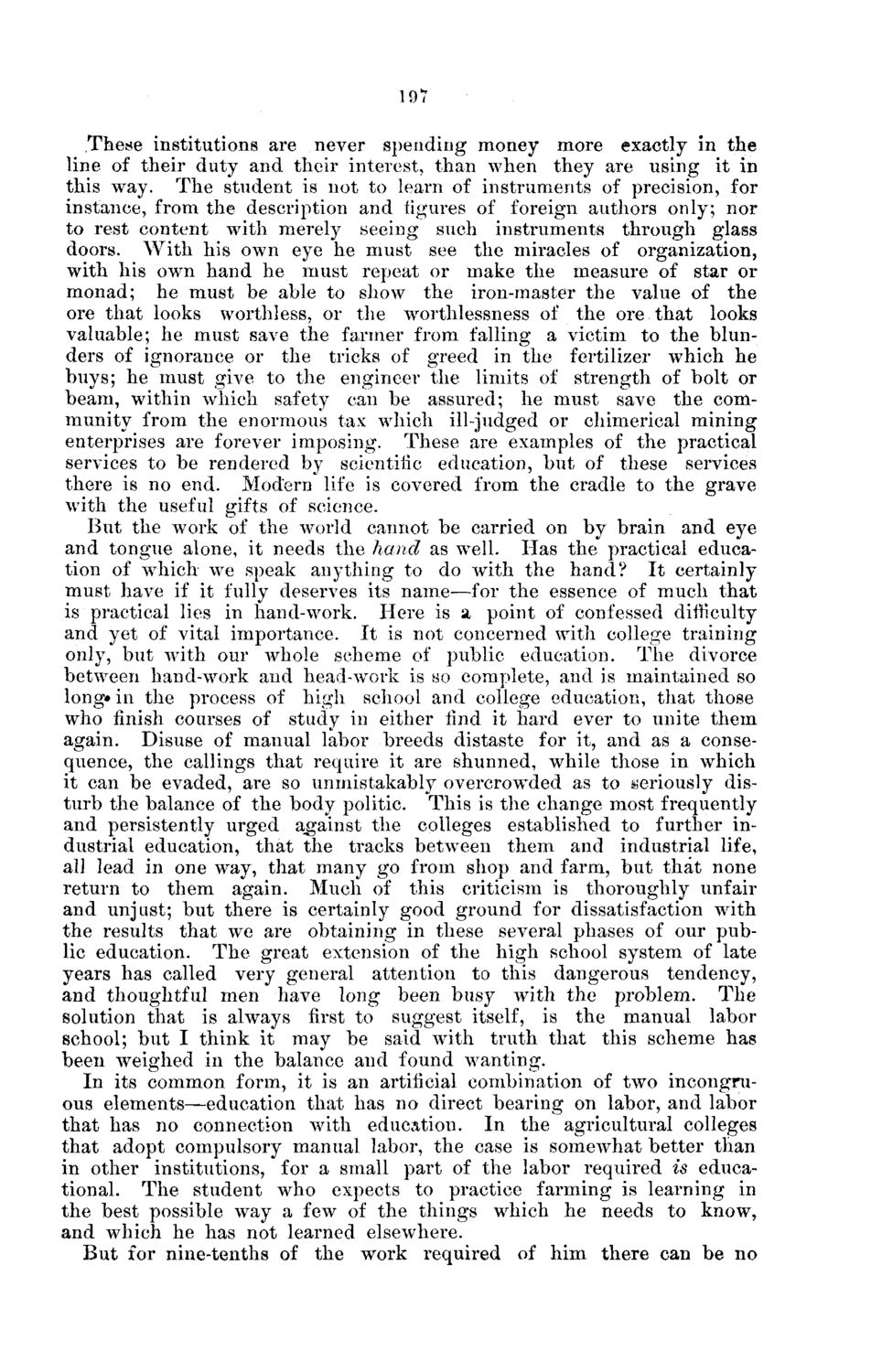| |
| |
Caption: Board of Trustees Minutes - 1878
This is a reduced-resolution page image for fast online browsing.

EXTRACTED TEXT FROM PAGE:
197 These institutions are never spending money more exactly in the line of their duty and their interest, than when they are using it in this way. The student is not to learn of instruments of precision, for instance, from the description and figures of foreign authors only; nor to rest content with merely seeing such instruments through glass doors. W i t h his own eye he must see the miracles of organization, with his own hand he must repeat or make the measure of star or monad; he must be able to show the iron-master the value of the ore that looks worthless, or the worthlessness of the ore that looks valuable; he must save the farmer from falling a victim to the blunders of ignorance or the tricks of greed in the fertilizer which he buys; he must give to the engineer the limits of strength of bolt or beam, within which safety can be assured; he must save the community from the enormous tax which ill-judged or chimerical mining enterprises are forever imposing. These are examples of the practical services to be rendered by scientific education, but of these services there is no end. Modern life is covered from the cradle to the grave with the useful gifts of science. But the work of the world cannot be carried on by brain and eye and tongue alone, it needs the hand as well. Has the practical education of which we speak anything to do with the hand? I t certainly must have if it fully deserves its name—for the essence of much that is practical lies in hand-work. Here is a point of confessed difficulty and yet of vital importance. It is not concerned with college training only, but with our whole scheme of public education. The divorce between hand-work and head-work is so complete, and is maintained so long» in the process of high school and college education, that those who finish courses of study in either find it hard ever to unite them again. Disuse of manual labor breeds distaste for it, and as a consequence, the callings that require it are shunned, while those in which it can be evaded, are so unmistakably overcrowded as to seriously disturb the balance of the body politic. This is the change most frequently and persistently urged against the colleges established to further industrial education, that the tracks between them and industrial life, all lead in one way, that many go from shop and farm, but t h a t none return to them again. Much of this criticism is thoroughly unfair and unjust; but there is certainly good ground for dissatisfaction with the results that we are obtaining in these several phases of our public education. T h e great extension of the high school system of late years has called very general attention to this dangerous tendency, and thoughtful men have long been busy with the problem. T h e solution that is always first to suggest itself, is the manual labor school; but I think it may be said with truth that this scheme has been weighed in the balance and found wanting. In its common form, it is an artificial combination of two incongruous elements—education that has no direct bearing on labor, and labor that has no connection with education. In the agricultural colleges that adopt compulsory manual labor, the case is somewhat better than in other institutions, for a small part of the labor required is educational. The student who expects to practice farming is learning in the best possible way a few of the things which he needs to know, and which he has not learned elsewhere. But for nine-tenths of the work required of him there can be no
| |